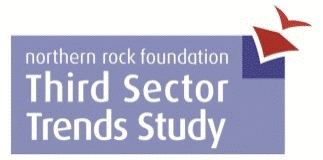 On 31st March a new report will be launched at Cass Business School, London, for Garfield Weston Foundation on how to help local voluntary organisations win funds from major national charitable foundations to tackle local social problems. The report, was written and researched by Professor Cathy Pharoah of the Centre for Charitable Giving and Philanthropy, City University; Professor Tony Chapman, Policy & Practice at St Chad’s College, Durham University; and Rose Tomlins, Director of qualitative research at GfK NOP Technology.
On 31st March a new report will be launched at Cass Business School, London, for Garfield Weston Foundation on how to help local voluntary organisations win funds from major national charitable foundations to tackle local social problems. The report, was written and researched by Professor Cathy Pharoah of the Centre for Charitable Giving and Philanthropy, City University; Professor Tony Chapman, Policy & Practice at St Chad’s College, Durham University; and Rose Tomlins, Director of qualitative research at GfK NOP Technology.
Tony’s part in the research included a series of interviews with key stakeholders in North East charitable foundations, third sector representative bodies and local authorities to determine how changes in the funding environment had impacted on charities’ access to funding. This work was underpinned with analysis of quantitative data from Northern Rock Foundation Third Sector Trends study.

